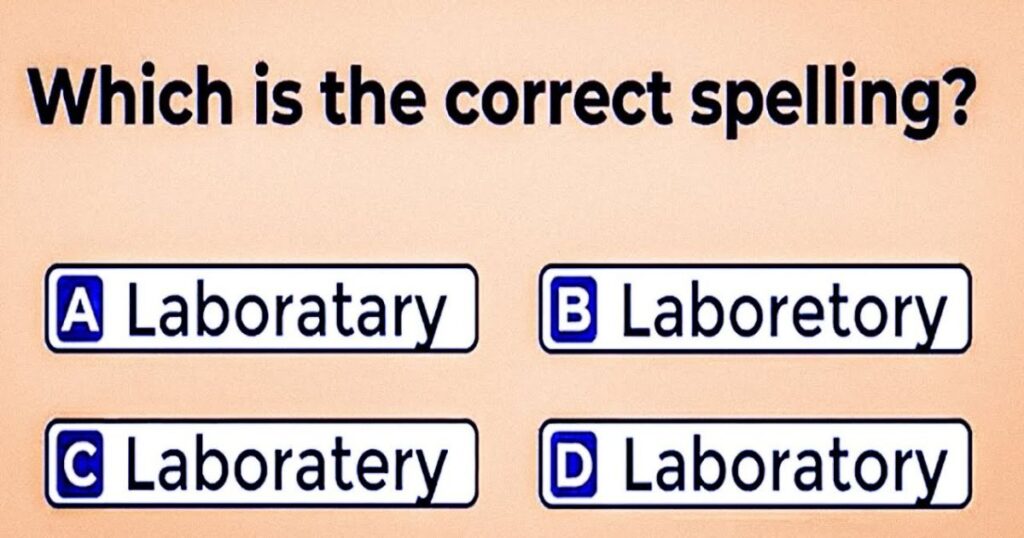Picture this: You’re writing an email to check on a colleague after a difficult project deadline. You type “How are you fairing with the new workload?” and pause. Something feels off. Should it be “fairing” or “faring”? You’re not alone in this confusion.
The how are you fairing or faring? differences + examples question trips up even experienced writers. This common grammar mix-up happens because both words sound identical when spoken, yet they have completely different meanings. Understanding the correct usage will help you communicate more effectively in professional and personal settings.
In this guide, you’ll discover which spelling is correct, learn the distinct meanings of both words, and master practical techniques to remember the difference. You’ll also see real-world examples that show proper usage in various contexts.
Understanding “Faring” and “Fairing”
Meaning of “Faring”
The word “faring” comes from the verb “fare.” It means how someone is doing or handling something. People use it when they want to know how things are going for someone.
Example: “How are you faring with your new job?”
Meaning of “Fairing”
The word “fairing” is a noun. It’s used in science and design. A fairing is a part added to cars, planes, or boats to help air or water move more smoothly.
Example: “The car’s fairing was made to help it use less fuel.”
Contexts and Usage Examples
Daily Conversation
Question: “How are you faring in school this semester?”
Context: A simple question to ask about school progress.
Health Check
Question: “How are you faring after your surgery?”
Context: A friend or family member asking about recovery.
Work Environment
Question: “How are you faring with the new software?”
Context: A coworker checking if you’re doing okay with new tools.
Travel Inquiry
Question: “How are you faring on your trip?”
Context: A friend wants to know if the trip is going well.
Emotional Wellness
Question: “How are you faring emotionally after the breakup?”
Context: Asking about someone’s feelings.
Performance Review
Question: “How are you faring against your sales targets?”
Context: A manager talking about work goals.
Family Check-in
Question: “How are the kids faring with online school?”
Context: Parents checking on their children’s learning.
Sports Performance
Question: “How is the team faring in the tournament?”
Context: Talking about how well the team is doing.
Social Gatherings
Question: “How are you faring at the party?”
Context: Someone checking if you’re having fun.
Community Activity
Question: “How are you faring with the community project?”
Context: Asking about your experience helping in a local event.
Additional Examples in Different Situations
Financial Inquiry
Question: “How are your investments faring in the market?”
Context: Asking how well someone’s money is doing.
Mentoring Situation
Question: “How are you faring in your career development?”
Context: A mentor checking on someone’s job progress.
Weather Updates
Question: “How is your area faring with the storm?”
Context: Asking if someone is safe in bad weather.
Creative Projects
Question: “How is your writing project faring this week?”
Context: Asking how someone’s work is going.
Academic Performance Check
Question: “How are you faring in your advanced math class?”
Context: A friend asking about schoolwork.
Friend’s Progress
Question: “How are you faring with your fitness goals?”
Context: Asking about progress in staying healthy.
Product Development
Question: “How is the new product faring in the market?”
Context: Asking how a new thing is selling.
Household Inquiry
Question: “How are you faring with your home renovations?”
Context: Talking about changes or improvements to a house.
Crisis Recovery
Question: “How is the community faring post-disaster?”
Context: Asking how people are doing after something bad happened.
Online Community
Question: “How are users faring with the new website design?”
Context: Asking if people like a new website look.
Further Discussion on “Fairing”
Aviation Engineering
Example: “The fairing on the aircraft reduces drag.”
Context: Talking about plane design.
Automotive Design
Example: “The fairing of the bike enhances its aerodynamic posture.”
Context: Talking about how a bike moves through air.
Maritime Context
Example: “The ship’s fairing was crucial for smooth sailing.”
Context: Talking about how boats move in water.
Model Airplanes
Example: “The fairing is important for the stability of the model.”
Context: Talking about toy planes or small models.
Spacecraft Engineering
Example: “The fairing protects the payload during launch.”
Context: Talking about parts of a spaceship.
Variations in Expression
Colloquial Inquiry
Example: “How’s it going? How are you faring?”
Context: A simple and friendly way to say hello.
Formal Inquiry
Example: “I hope you are faring well in your endeavors.”
Context: A polite way to ask how someone is doing.
Social Media Interaction
Example: “How are you faring in this lockdown?”
Context: Talking about life during hard times.
Festival Participation
Example: “How are the festivities faring this year?”
Context: Talking about holiday or festival success.
Technology Feedback
Example: “How is the app faring with its updates?”
Context: Asking if a new app is working well.
Additional Reflections
Seasonal Check-In
Example: “How are you faring with the seasonal changes?”
Context: Talking about mood or health in different weather.
Children’s Activities
Example: “How are your kids faring in their sports activities?”
Context: Asking about how kids are doing in sports.
Crisis Situations
Example: “How are you faring amid all the chaos?”
Context: A serious way to ask how someone is coping.
Diet and Nutrition
Example: “How are you faring with your new diet plan?”
Context: Asking about healthy eating changes.
Retirement Check-In
Example: “How are you faring in your retirement?”
Context: Talking about life after work.
Summary Points
- Build Rapport: Using “faring” helps people feel cared for.
- Professional Tone: The word sounds more serious in business.
- Informal Context: “Faring” works in friendly chats too.
- Understanding Audience: Use it when you want to sound polite.
- Cultural Variations: In some places, asking this shows kindness.
Conclusion on Usage
- Clarifying Understanding: Asking “how are you faring?” lets people share more.
- Avoiding “Fairing” Errors: Don’t use “fairing” when talking about someone’s feelings.
- Expressing Interest: This question shows you care.
- Enhancing Vocabulary: It’s a good word to know and use.
- Literary Language: “Faring” makes your writing sound nicer.
Practical Application
- Adapting Language Style: Use “faring” to sound smart and caring.
- Feedback Mechanism: It’s good for check-ins and support.
- Language Learning: Knowing the difference helps avoid mix-ups.
- Empathy Expression: This word shows you understand.
- Long-term Relationships: Asking “how are you faring?” keeps bonds strong.
The Quick Answer: Which Spelling Is Correct?

“Faring” is the correct spelling when asking about someone’s progress, condition, or how they’re managing a situation. The phrase “how are you faring” means you’re inquiring about their wellbeing or how they’re handling circumstances.
“Fairing” refers to something completely different – it’s a technical term used in nautical, automotive, and aviation contexts to describe streamlined coverings or structural components. When you ask “how are you faring or fairing,” only “faring” makes grammatical sense for checking on someone’s condition.
The how are you faring meaning centers on progress and wellbeing, making it the appropriate choice for personal and professional communications.
Understanding “Faring” – The Correct Choice
“Faring” serves as the present participle of the verb “fare,” which originally meant “to travel” but has evolved to mean “to get along” or “to succeed.” The word traces back to Old English “faran,” meaning “to go” or “journey.” Over centuries, its meaning expanded to include how well someone progresses through life’s various journeys and challenges.
The faring well meaning encompasses thriving, succeeding, or managing effectively in a given situation. When someone asks if you’re faring well, they want to know if you’re handling your circumstances successfully and maintaining good spirits.
Professional contexts frequently use this phrase in workplace communications. A manager might ask, “How are you faring with the quarterly reports?” during a check-in meeting. The how are you faring answer could range from “I’m faring quite well, thank you” to “I’m faring better than expected despite the challenges.”
The phrase appears naturally in various situations. During economic uncertainty, news reports might state, “Small businesses are faring better than anticipated.” In academic settings, teachers discuss how students are faring with new curriculum changes. Even weather-related conversations use this construction, such as asking “how are you faring the weather” during severe storms or extreme temperatures.
Personal relationships also benefit from this thoughtful inquiry. When friends face difficult times, asking “How are you faring?” shows genuine concern and interest in their wellbeing. The i hope you are faring well meaning expresses sincere wishes for someone’s continued success and happiness.
What Does “Fairing” Actually Mean?
“Fairing” operates in entirely different territory from “faring.” This technical term describes streamlined structures designed to reduce drag and improve aerodynamics or hydrodynamics. In maritime contexts, fairings are smooth coverings that help water flow efficiently around a boat’s hull. Aircraft use fairings to create seamless transitions between different components, reducing air resistance.
Motorcycle enthusiasts know fairings as the plastic or fiberglass panels that cover the bike’s frame and engine components. These fairings serve both functional and aesthetic purposes, protecting internal parts while improving the motorcycle’s aerodynamic profile.
The confusion between faring or fairing well stems from their identical pronunciation, but their meanings couldn’t be more different. While “faring well” describes positive progress or good health, “fairing well” would only make sense if discussing the proper condition of streamlined coverings on vehicles or vessels.
Automotive engineers might say, “The car’s front fairing needs adjustment for better airflow,” but they would never use “fairing” when discussing someone’s personal condition or progress. Understanding this distinction prevents embarrassing mistakes in both technical and casual conversations.
Memory Tricks to Remember the Difference
Several effective strategies can help you remember when to use “faring” versus “fairing.” The connection between “fare” and “welfare” provides a useful memory anchor – both words relate to doing well or managing successfully. When you think of faring well meaning, associate it with overall welfare and wellbeing.
Another helpful technique involves connecting “faring” with “caring.” Both words share the “-aring” ending and relate to concern for someone’s condition. When you care about how someone is doing, you ask how they’re faring.
The substitution test offers a practical verification method. Replace “faring” with “doing” in your sentence. If the sentence makes sense with “doing,” then “faring” is correct. “How are you doing with your new job?” translates perfectly to “How are you faring with your new job?”
Common mistake patterns often involve overthinking the spelling. Many people assume the more complex-looking “fairing” must be correct for sophisticated contexts, but simplicity wins here. Is how are you faring correct? Yes, absolutely – the simpler spelling serves the common usage.
Think of the phrase “fare thee well,” an old-fashioned way of saying goodbye that wishes someone success on their journey. This historical connection reinforces that “fare” and its variants relate to progressing through life’s experiences.
Real-World Examples in Different Contexts

Professional communications benefit from proper usage of this phrase. Email exchanges often include inquiries like, “I hope you’re faring well with the transition to remote work.” Business meetings might feature questions such as, “How is the marketing team faring with the budget constraints?”
Academic writing maintains formal standards while using this phrase appropriately. Research papers might discuss how different demographic groups are faring under new policies. Educational newsletters could ask parents, “How are your children faring with online learning?”
Social media platforms showcase both correct and incorrect usage daily. Proper posts might read, “Checking in to see how everyone is faring during these challenging times.” Unfortunately, incorrect versions like “How are you fairing today?” also appear frequently, demonstrating the ongoing confusion.
Personal conversations rely heavily on this phrase for expressing genuine concern. Friends might text, “Just wanted to see how you’re faring after yesterday’s presentation.” Family members checking on elderly relatives often ask, “How are you faring meaning to inquire about their health and daily management.
The contrast between correct and incorrect usage becomes clear in side-by-side examples. Correct: “The startup is faring well despite initial funding challenges.” Incorrect: “The startup is fairing well despite initial funding challenges.” The second version suggests the company is installing streamlined coverings, which makes no sense in a business context.
Related Common Confusions to Avoid
The “faring versus fairing” confusion follows patterns seen in other commonly mixed-up word pairs. “Bearing versus baring” creates similar challenges – “bearing” means carrying or enduring, while “baring” means exposing or uncovering. Like our main topic, these words sound identical but serve completely different purposes.
Another parallel exists with “caring versus carring.” While “carring” isn’t a real word, people sometimes add extra letters when they’re uncertain about spelling. This pattern explains why some writers might choose “fairing” when they mean “faring” – the extra letters seem more substantial or correct.
Recognition of these patterns helps prevent similar errors across your writing. When you encounter homophones or near-homophones, take time to consider their distinct meanings rather than assuming the more complex spelling is automatically correct.
General spelling strategies include reading extensively to internalize correct usage patterns, using spell-check tools as a first line of defense, and consulting reliable dictionaries when uncertainty arises. However, remember that spell-check won’t catch “fairing” when you mean “faring” because both are correctly spelled words – just used in different contexts.
Conclusion
The how are you faring or fairing question has a clear answer: “faring” is correct when asking about someone’s progress, condition, or wellbeing. This distinction matters because using the wrong word can confuse readers and undermine your credibility as a communicator.
Remember that “faring” connects to welfare, progress, and success in life’s various challenges. “Fairing” belongs in technical discussions about vehicles, boats, and aircraft components. Context provides the crucial difference between these two identical-sounding words.
Practice using “faring” correctly in your daily communications. Whether you’re checking on colleagues, writing formal correspondence, or simply caring about friends and family, this phrase helps you express genuine concern professionally and personally. The more you use it correctly, the more natural it becomes.
Master this distinction, and you’ll communicate with greater confidence and clarity. Your readers will appreciate your attention to proper usage, and you’ll avoid the common mistakes that distract from your intended message.

Faraz Babar is a skilled wordsmith with a keen interest in the rich world of synonyms and language nuances. With a flair for simplifying complex vocabulary, he crafts content that’s both enlightening and enjoyable to read.











